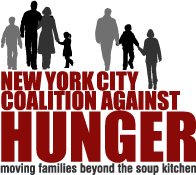Tuesday, July 25, 2006
Blackout: Reimbursement available for spoiled food
Residents of Queens and the Bronx affected by the major blackouts of this week and last week can obtain reimbursements for spoiled food through the New York City government and conEdison. Additionally, those who receive food stamps can obtain replacement food stamps by filling out an application within the next 10 days. For instructions and procedures, residents are urged to call 311 or visit www.nyc.gov.
Tuesday, July 18, 2006
City Council donates money to food pantry
As a result of an individual member’s request, a $4,000 grant was given to the Yorkville Common Food Pantry by the City Council. There has been some controversy over how these funds are allocated, particularly in regards to whether the projects are deserving of grants or are simply member “pet projects.”
The food deserts--not desserts--of Chicago
A recent analysis in the Chicago Tribune discusses the lack of healthy and nutritious food available in low-income African American communities. The New York City Coalition Against Hunger is in the process of completing its own mapping report about food security in the South Bronx, Brownsville, and Central Harlem. The information will be available at nyccah.org/maps.
Monday, July 17, 2006
Youth group from Stoughton, Mass. volunteers in NYC
Ten members of the Stoughton First Congregational Church traveled to New York City on a five-day mission trip. During this time, they worked at soup kitchens and fed “over 5,000 people,” according to one young volunteer. His mother observed that “in New York there are just so many different things out there for those people who really need it.”
Thursday, July 13, 2006
Kosher food for Orthodox needy
Amidst rising hunger among Orthodox Jews in Brooklyn and what the Food Bank for New York City refers to a “stigma” about poverty among this population, the Orthodox soup kitchen Masbia serves a large number of Brooklyn Jews.
City food agency key component of Council anti-hunger plan
Responding to calls from advocates and health professionals, City Council Speaker Christine Quinn and member Eric Gioia are seeking a comprehensive citywide approach to fighting hunger. According to Gioia, the sensible, low-cost plan endorsed by the council entails creating a city hunger czar, cutting through the red tape on food stamps access, and enabling food stamps recipients to obtain healthier foods like fruits and vegetables.
Tuesday, July 11, 2006
New welfare guidelines may increase need for emergency food
From the July 7 edition of the Foodlinks America electronic newsletter:
"Revised guidelines for what can be counted to meet work requirements in the Temporary Assistance for Needy Families program, the federal government’s main welfare support mechanism for families with children, reduce state flexibility and may increase the number of families in need of emergency food. The new regulations were issued by the US Department of Health and Human Services in the June 28, 2006 Federal Register.
"Welfare analysts found the new rules to be unduly restrictive....
"'In the late 1990s, in a better economy with more spending on child care and other work supports, states had a hard time reaching even the lower work standards,' Joel Berg, executive director of the New York City Coalition Against Hunger, told Foodlinks America. 'Now, with fewer jobs available and less money for work supports, states will have no choice but to throw more people off the rolls – whether or not they have jobs,' Berg noted. 'The new rules will likely increase poverty, homelessness, and hunger – the absolute opposite of their stated goal of helping people achieve self-sufficiency,' he said."
"Revised guidelines for what can be counted to meet work requirements in the Temporary Assistance for Needy Families program, the federal government’s main welfare support mechanism for families with children, reduce state flexibility and may increase the number of families in need of emergency food. The new regulations were issued by the US Department of Health and Human Services in the June 28, 2006 Federal Register.
"Welfare analysts found the new rules to be unduly restrictive....
"'In the late 1990s, in a better economy with more spending on child care and other work supports, states had a hard time reaching even the lower work standards,' Joel Berg, executive director of the New York City Coalition Against Hunger, told Foodlinks America. 'Now, with fewer jobs available and less money for work supports, states will have no choice but to throw more people off the rolls – whether or not they have jobs,' Berg noted. 'The new rules will likely increase poverty, homelessness, and hunger – the absolute opposite of their stated goal of helping people achieve self-sufficiency,' he said."
Subscribe to:
Posts (Atom)
